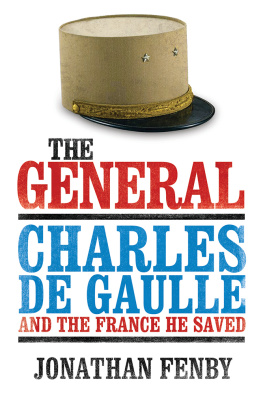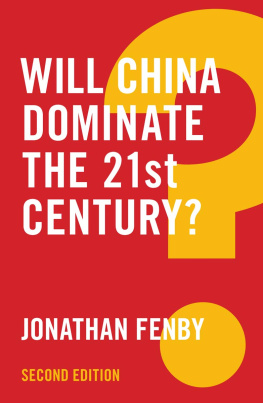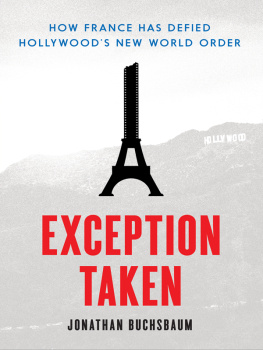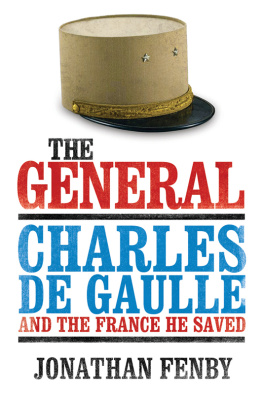Jonathan Fenby - The History of Modern France
Here you can read online Jonathan Fenby - The History of Modern France full text of the book (entire story) in english for free. Download pdf and epub, get meaning, cover and reviews about this ebook. publisher: Simon & Schuster UK, genre: Politics. Description of the work, (preface) as well as reviews are available. Best literature library LitArk.com created for fans of good reading and offers a wide selection of genres:
Romance novel
Science fiction
Adventure
Detective
Science
History
Home and family
Prose
Art
Politics
Computer
Non-fiction
Religion
Business
Children
Humor
Choose a favorite category and find really read worthwhile books. Enjoy immersion in the world of imagination, feel the emotions of the characters or learn something new for yourself, make an fascinating discovery.
- Book:The History of Modern France
- Author:
- Publisher:Simon & Schuster UK
- Genre:
- Rating:3 / 5
- Favourites:Add to favourites
- Your mark:
- 60
- 1
- 2
- 3
- 4
- 5
The History of Modern France: summary, description and annotation
We offer to read an annotation, description, summary or preface (depends on what the author of the book "The History of Modern France" wrote himself). If you haven't found the necessary information about the book — write in the comments, we will try to find it.
The History of Modern France — read online for free the complete book (whole text) full work
Below is the text of the book, divided by pages. System saving the place of the last page read, allows you to conveniently read the book "The History of Modern France" online for free, without having to search again every time where you left off. Put a bookmark, and you can go to the page where you finished reading at any time.
Font size:
Interval:
Bookmark:
THE HISTORY OF
MODERN FRANCE
Also by Jonathan Fenby
ALLIANCE
THE GENERAL
GENERALISSIMO
THE SINKING OF THE LANCASTRIA
TIGER HEAD, SNAKE TAILS

First published in Great Britain by Simon & Schuster UK Ltd, 2015
A CBS COMPANY
Copyright 2015 by Jonathan Fenby
This book is copyright under the Berne Convention.
No reproduction without permission.
All rights reserved.
The right of Jonathan Fenby to be identified as the author of this work has been asserted by him in accordance with sections 77 and 78 of the Copyright, Designs and Patents Act, 1988.
Simon & Schuster UK Ltd
1st Floor
222 Grays Inn Road
London WC1X 8HB
www.simonandschuster.co.uk
Simon & Schuster Australia, Sydney
Simon & Schuster India, New Delhi
A CIP catalogue record for this book is available from the British Library
Hardback ISBN: 978-1-4711-2929-2
Ebook ISBN: 978-1-4711-2931-5
Typeset in Baskerville by M Rules
Printed and bound by CPI Group (UK) Ltd, Croydon, CR0 4YY

Simon & Schuster UK Ltd are committed to sourcing paper that is made from wood grown in sustainable forests and supports the Forest Stewardship Council, the leading international forest certification organisation. Our books displaying the FSC logo are printed on FSC certified paper.
To Ella Grace
and, as always, to Rene
CONTENTS
Prologue
THE LASTING LEGACY OF THE REVOLUTION
The Revolution changed everything and forever, though not in the way its proponents intended; the heritage was far more complex. As it played itself out in the decade before Napoleon took power, this was, as Charles Dickens put it, the best and the worst of times. Bliss was it in that dawn to be alive, wrote William Wordsworth in 1789. But the sequel three-and-a-half years later, as the king was executed and the Jacobins unleashed the Terror, created a fearsome warning of where populism directed by a ruthless political class could lead, the self-proclaimed guides of the people justifying themselves with claims to superior merit and wisdom in a manner that pre-figured twentieth-century totalitarianism to legitimise violence against foes, real or imagined. The Revolution was marked from its early days by factionalism made all the more murderous by the claims of the competing groups to embody ultimate goodness and reason. It all ended in the imperial rule of Bonaparte followed by the restoration of the Bourbon monarchy. Yet the Revolution gave France a new image of itself and set a template which would make the nation a beacon for progressives across Europe, with the overthrow of later Bourbon monarchs in 1830 and 1848 sparking revolts across the continent and the countervailing evolution of conservative thinking that hardened into reaction.
The storming of the Bastille on 14 July 1789, and the events that followed, bred national narratives that gave Frances modern history its ideological complexion over two centuries. Sovereignty passed from a
Frances enduring divisions between left and right, Catholics and proponents of the secular state, centralisers and devolutionists have deep roots in the mindsets of those who have seen 1789 and the ensuing events as the start of a new and glorious era and those who view it as having led to a distortion overkill and the failure of politicians to deliver, have impeded constructive compromise, marking Frances distance from the proposition of the British political thinker, Edmund Burke, that all government, indeed every human benefit and enjoyment, every virtue, and every prudent act, is founded on compromise and barter.
Fundamental questions remain. Who has the right to rule and on the basis of what legitimacy? If politics are primordial, what form should they take and in what framework? How can democracy coexist with effective executive government, and which should be given precedence? Does citizenship encompass the right of street protest by anybody choosing to claim to speak for the people? Is violence justified in the pursuit of revolutionary ideals or in suppressing them, as in the domestic conflicts of the nineteenth century, which took at least 60,000 lives? When do the people become the mob? Can the Rights of Man be implemented by force and does the pursuit of revolutionary purity justify purging opponents? Indeed, can one speak of man as a generality in quest of improvement, or was the Savoyard, Joseph de Maistre, who took revolutionaries to be the servants of Satan, correct when he wrote that he had met Frenchmen, Italians, Germans and Russians but as for Man, Ive never met one in my life. Such issues apply to other countries, but, thanks to the Revolution, they have a lasting and special meaning in France that gives a special character
Left and right a messy reality
The left, which seeks its roots in the Revolution and the Enlightenment that preceded it, and the right, which was restored with the Bourbons in 181415, are political churches containing many different mansions. A Socialist prime minister, Michel Rocard, sought a simple division of the left into two different schools one drawing on the centralising, strong state heritage of the Revolutionary Jacobins to enforce change, the other opting for decentralisation and regionalism with strong communities and local enterprises. A more recent writer, Jacques Julliard, in a 942-page book published in 2012, posited four strands the liberal left, the Jacobin left, the collectivist left and the libertarian left. He then added the tranquil left before identifying yet more lefts rooted in Jesuitism
On the right, monarchism faded during the nineteenth century after the ousting of two Bourbon kings, but Napoleon III restored the Empire and some forceful republican leaders have been anything but of the left. For four years, the Vichy regime tried to impose a reactionary collectivist administration headed by a soldier in his dotage surrounded by a gang of conspirators of the right, some of whom sent Frenchmen to fight alongside the Wehrmacht on the Eastern Front. The demarcation between left and right has often been blurred; a general from a traditional background presided over widespread nationalisations and a big extension of the welfare state after the Liberation of 1944 while a Socialist-led government stepped up the war to keep Algeria French. If the Revolution itself was a confused process, so its lasting heritage in Frances republicanism is, as one historian has put it, a messy reality.
The execution of Louis XVI, the spectre of the guillotine (adopted at the urging of the doctor-politician Joseph-Ignace Guillotin in 1792 as a humane and egalitarian means of execution) and the totalitarian slaughter of the Terror directed by Maximilien de Robespierre mask the fact that by far the majority of those who perished between 1789 and 1815 did so in warfare with foreign nations, as France defended itself from anti-revolutionary powers and then launched its own campaigns culminating in the Napoleonic bid for European hegemony. In all, perhaps 1.5 million French people died; more than a third of boys born between 1790 and 1795 were killed or wounded. Compared to that, less than 1 per cent of the nobility were put to death.
For all the legacy of street action and the mob unruliness of the sansculottes, the primary beneficiaries of the Revolution were the bourgeoisie, in their several forms, and richer peasants. They bought land confiscated from the nobility and the church cheaply and made the most of the relaxation of the commercial and professional restrictions of the old regime. Under the Directory, which followed the Terror, making money and keeping down the workers was the ruling groups prime concern. While claiming to defend the revolutionary heritage, Bonapartes meritocratic autocracy ushered in a gilded society for the new rich who amassed assets and titles.
Next pageFont size:
Interval:
Bookmark:
Similar books «The History of Modern France»
Look at similar books to The History of Modern France. We have selected literature similar in name and meaning in the hope of providing readers with more options to find new, interesting, not yet read works.
Discussion, reviews of the book The History of Modern France and just readers' own opinions. Leave your comments, write what you think about the work, its meaning or the main characters. Specify what exactly you liked and what you didn't like, and why you think so.













